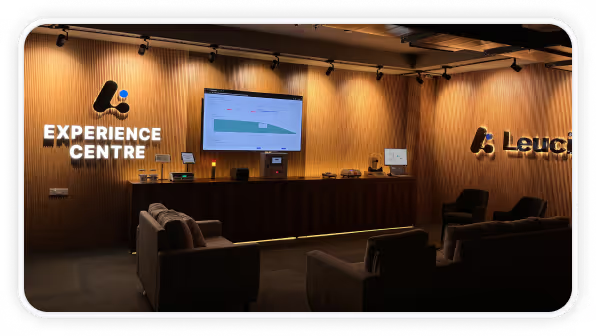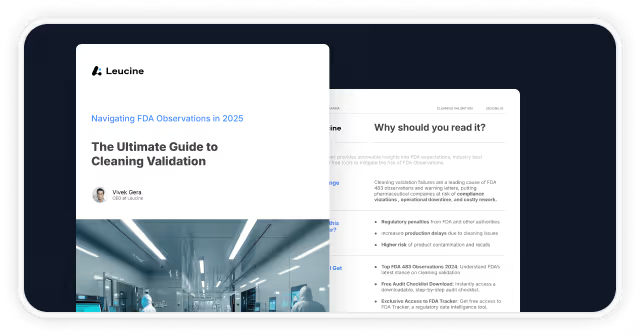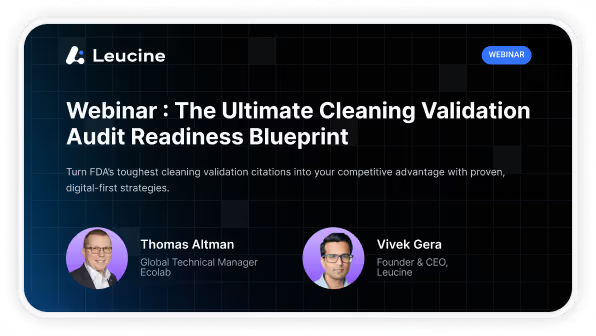Deviation Guidelines in Pharma: Ensuring Control and Compliance

In pharmaceutical manufacturing, deviations are inevitable—but how they’re handled defines the strength of your quality system and the product's quality. Pharmaceutical companies must follow deviation guidelines to ensure that quality, safety, and regulatory compliance are never compromised. Clear policies and procedures must be accessible to all relevant personnel involved in deviation management. An effective deviation management system helps identify, investigate, and correct anomalies before they escalate into risks, thereby helping to maintain compliance. This blog explores key global deviation guidelines and how pharma leaders can turn compliance into a competitive advantage.
Key Deviation Management Guidelines in the Pharmaceutical Industry
1. ICH Q10: Pharmaceutical Quality System
ICH Q10 positions deviation management as a foundational element in quality systems, with expectations around:
- Identification & Documentation – Immediate detection and logging of deviations from established protocols
- Root Cause Analysis – Systematic investigation using tools like 5-Whys or Fishbone
- CAPA – Implement corrective actions to mitigate immediate impacts of deviations and develop preventive actions to ensure such issues do not recur
- Management Review – Regular reviews to assess CAPA effectiveness
- Process Parameters – Monitoring critical conditions to ensure compliance and prevent nonconformities
2. FDA 21 CFR Part 211
The FDA mandates robust deviation handling under GMP compliance:
- Written Procedures – Clearly defined SOPs for deviation control. It is essential to document and investigate whenever a deviation occurs to ensure swift corrective actions.
- Timely Investigation – Prompt analysis and documentation of all discrepancies
- It is crucial to identify and address any significant departure from established procedures, as these can significantly affect drug quality and regulatory compliance.
- Quality Oversight – QC Unit must review and approve investigations
- Relevant Departments – Collaboration among relevant departments is crucial for drafting, reviewing, and approving deviation documents to ensure compliance and maintain product integrity.
3. EU GMP Chapter 8
EU GMP Chapter 8 emphasizes deviation control and trend-based improvement:
- Deviation Documentation – Accurate records of all non-conformances. A major deviation from required procedures can significantly impact a product’s quality, safety, or efficacy. A minor deviation involves divergences from established procedures that have a noticeable but limited impact on product quality or regulatory compliance.
- CAPA & RCA – Detailed root cause analysis followed by resolution
- Importance of robust deviation management processes to ensure compliance and quality
- Trend Analysis – Identifying repeat issues for systemic correction
Useful Links: EU GMP Guidelines
4. WHO GMP
WHO outlines deviation handling as essential for global regulatory alignment:
- Structured Procedures – SOPs for deviation identification, investigation, and CAPA. Managing planned deviations is crucial to address temporary changes in design or materials while maintaining compliance.
- Managing planned and unplanned deviations is crucial to maintain product quality and compliance
- Continuous Improvement – Use deviation data for quality enhancement
Useful Links: WHO GMP Guidelines
5. PIC/S GMP
PIC/S guidance is critical for international harmonization:
- Deviation Lifecycle Control – From detection to documentation and closure. Manage deviations in a systematic manner to ensure compliance and quality
- Impact Assessment – Evaluate quality impact and regulatory implications
- Audit-Ready Records – Maintain traceable and complete deviation logs
Recent Changes in Deviation Management Guidelines
1. ICH Q12: Lifecycle Management
Facilitates post-approval change control and connects deviation resolution with continuous product lifecycle governance.
A comprehensive deviation management process is essential for ensuring compliance and maintaining product quality throughout the product lifecycle. Managing deviations in a systematic manner, including the implementation of preventive action as part of the Corrective and Preventive Action (CAPA) process, is crucial to ensure compliance with regulations and maintain product quality and operational efficiency. 🔗 ICH Q12 Guideline
FDA’s Updated Guidance on Deviations and Corrective and Preventive Actions
Emphasizes speed in deviation documentation and the need for systemic CAPA to reduce recurrence. Handling deviations effectively is essential, as it involves detailed procedures and policies to manage deviations in line with EU GMP guidelines and ICH Q10. These updates are crucial for helping pharmaceutical companies maintain compliance with regulatory standards. 🔗 FDA Inspection Guides
3. EU GMP Annex 16 (Revised)
Now includes batch certification requirements that hinge on robust deviation resolution practices. A complete analysis is essential to investigate deviations and ensure compliance with predetermined specifications. Quality control plays a vital role in this process. 🔗 EU GMP Annex 16
Managing deviations in a systematic manner is crucial to ensure compliance with regulations and maintain product quality.
4. WHO GMP Revisions
Stresses risk-based deviation assessment and its documentation in relation to public health risks.
Deviation management is a critical component of pharmaceutical manufacturing, essential for maintaining product quality and regulatory compliance. These revisions are crucial for helping pharmaceutical companies maintain compliance through structured processes like root-cause analysis and implementing corrective and Preventive Actions (CAPA).
Quick Audit Readiness Checklist for Deviations
To ensure your deviation handling process stands up to inspection:
- Timely Documentation – Are deviations logged immediately?
- Documenting Deviations – Ensure all deviations are thoroughly documented to maintain compliance and audit readiness.
- RCA Depth – Are root causes properly investigated?
- Human Error – Is human error considered and analyzed during root cause investigations?
- CAPA Tracking – Are corrective actions implemented and monitored?
- Review Frequency – Are deviation trends reviewed regularly by quality leadership?
- Digital Traceability – Is your process fully traceable and audit-ready?
- Maintain Compliance – Are structured processes like root-cause analysis and CAPA in place to ensure regulatory compliance, product quality, and safety?
Download Full Audit Readiness Checklist →
Why Deviation Guidelines Matter for Pharma Leaders
Deviation management isn’t just a compliance function—it’s a strategic tool for quality assurance:
- Regulatory Readiness – Avoiding 483s, warning letters, and costly rework
- Operational Excellence – Detecting and solving inefficiencies early
- Product Confidence – Building trust with patients, regulators, and partners
- Risk Reduction – Preventing recurrence through data-driven actions
A robust quality management system is essential for managing deviations effectively and ensuring continuous improvement.
Pharma CEOs and Quality Heads must ensure that deviation data is not just tracked but acted upon as part of continuous improvement and decision-making. These guidelines are crucial for helping pharmaceutical companies maintain compliance through structured processes like root-cause analysis and Corrective and Preventive Actions (CAPA).
Ready to Strengthen Your Deviation Execution?
While guidelines define the framework, execution makes the difference. Adhering to good manufacturing practice (GMP) guidelines is crucial for ensuring compliance and maintaining product quality and patient safety. Adhering to regulatory requirements is crucial for ensuring compliance and maintaining product quality and patient safety.
Leucine’s next-gen MES helps pharma teams:
- Execute batches with built-in deviation capture
- Ensure real-time compliance with 21 CFR Part 11 & EU GMP
- Maintain digital audit trails and eliminate manual error
These practices are essential for helping pharmaceutical companies maintain compliance through structured processes like root-cause analysis and Corrective and Preventive Actions (CAPA).
Make deviation handling part of your operational excellence strategy.
Visit Leucine.io to learn more






























.png)
